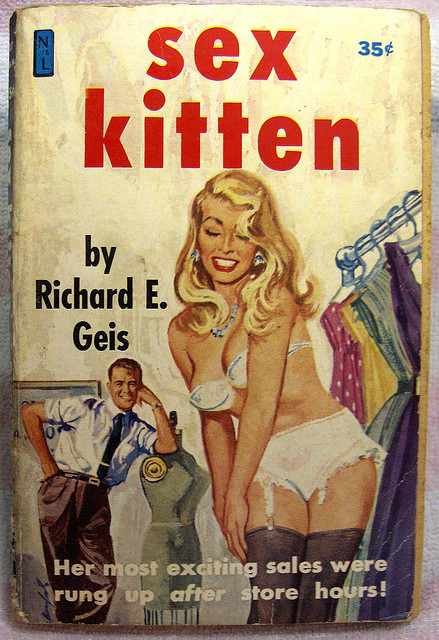|
Antinomy (novel)
''Antinomy'' is a collection by Spider Robinson Spider Robinson (born November 24, 1948) is an American-born Canadian list of science fiction authors, science fiction author. He has won a number of awards for his hard science fiction and humorous stories, including the Hugo Award 1977 and 198 ... published in 1980. Plot summary ''Antinomy'' is a collection of science fiction short stories, songs, and puns. Reception Greg Costikyan reviewed ''Antinomy'' in '' Ares Magazine'' #6 and commented that "Anyone who likes science fiction cannot fail, I think, to enjoy Robinson's work." Reviews *Review by Andrew Andrews (1981) in Science Fiction Review, Summer 1981 References {{reflist 1980 novels ... [...More Info...] [...Related Items...] OR: [Wikipedia] [Google] [Baidu] |
Spider Robinson
Spider Robinson (born November 24, 1948) is an American-born Canadian list of science fiction authors, science fiction author. He has won a number of awards for his hard science fiction and humorous stories, including the Hugo Award 1977 and 1983, and another Hugo with his co-author and wife Jeanne Robinson in 1978. Early life and education Robinson was born in the Bronx, New York City; his father was a salesman. He was an avid reader of science fiction, and it was his early childhood exposure to the Heinlein juveniles, juvenile novels of Robert Heinlein that later influenced him to become a writer. He attended a Catholic high school, spending his junior year in a seminary; this was followed by two years in a Catholic college, and five years at the Stony Brook University, State University of New York at Stony Brook in the 1960s, where he earned a Bachelor of Arts in English. While at Stony Brook, Spider entertained at campus coffeehouses and gatherings, strumming his guitar and ... [...More Info...] [...Related Items...] OR: [Wikipedia] [Google] [Baidu] |
Greg Costikyan
Greg Costikyan (born July 22, 1959, in New York City), sometimes known under the pseudonym "Designer X", is an American game designer and science fiction writer. Costikyan's career spans nearly all extant genres of gaming, including: hex-based wargames, role-playing games, boardgames, card games, computer games, online games and mobile games. Several of his games have won Origins Awards. He co-founded Manifesto Games, now out of business, with Johnny Wilson in 2005. Personal life and education Greg Costikyan is the son of attorney and politician Edward N. and Frances (Holmgren) Costikyan. He and Warren Spector, a game designer, were friends since high school. He is a 1982 graduate (B.S.) of Brown University. (subscription required) He married Louise Disbrow (a securities analyst), September 4, 1986. They have three children. He is a frequent speaker at game industry events including the Game Developers Conference and E³. Career Greg Costikyan has been a game designer since th ... [...More Info...] [...Related Items...] OR: [Wikipedia] [Google] [Baidu] |
Ares (magazine)
''Ares'' was an American science fiction wargame magazine published by Simulations Publications, Inc. (SPI), and then TSR, Inc., between 1980 and 1984. In addition to the articles, each issue contained a wargame, complete with a foldout stiff paper map, a set of cardboard counters, and the rules. Publication history Simulations Publications, Inc. (SPI) began publishing ''Ares'' in 1980 as a science-fiction companion to ''Strategy & Tactics''.''Ares'' magazine was similar to ''Strategy & Tactics'', with a game every issue, but it focused on science-fiction and fantasy. SPI suffered financial problems and went into debt, and TSR bought the company and its assets in 1982. Shannon Appelcine stated that "TSR did very little with SPI's roleplaying games. ''Ares Magazine'' #12 (1982), which was prepared by SPI and published by TSR, included a game called 'Star Traders,' which was for use with ''Universe''; it was the last support for that game system ..As TSR turned further away fr ... [...More Info...] [...Related Items...] OR: [Wikipedia] [Google] [Baidu] |
Simulations Publications, Inc
A simulation is the imitation of the operation of a real-world process or system over time. Simulations require the use of models; the model represents the key characteristics or behaviors of the selected system or process, whereas the simulation represents the evolution of the model over time. Often, computers are used to execute the simulation. Simulation is used in many contexts, such as simulation of technology for performance tuning or optimizing, safety engineering, testing, training, education, and video games. Simulation is also used with scientific modelling of natural systems or human systems to gain insight into their functioning, as in economics. Simulation can be used to show the eventual real effects of alternative conditions and courses of action. Simulation is also used when the real system cannot be engaged, because it may not be accessible, or it may be dangerous or unacceptable to engage, or it is being designed but not yet built, or it may simply not e ... [...More Info...] [...Related Items...] OR: [Wikipedia] [Google] [Baidu] |
Science Fiction Review
Richard E. Geis (July 19, 1927 – February 4, 2013) was an American science fiction fan and writer, and erotica writer, from Portland, Oregon, who won the Hugo Award for Best Fan Writer in 1982 and 1983; and whose science fiction fanzine ''Science Fiction Review'' won the 1969, 1970, 1977 and 1979 Hugo Awards for Best Fanzine. His '' The Alien Critic'' won the Best Fanzine Hugo in 1974 (in a tie with ''Algol''), and in 1975 as sole first place. He was nominated for the Hugo for Best Fan Writer from 1970 to 1971 and 1973-1986 inclusive; his science fiction fanzines A science-fiction fanzine is an amateur or semi-professional magazine published by members of science-fiction fandom, from the 1930s to the present day. They were one of the earliest forms of fanzine, within one of which the term "''fanzine''" was ... were nominated for the Hugo for Best Fanzine from 1968 to 1971 and 1974-1983 inclusive: a total of 30 Hugo nominations and 13 Hugos. Many of his recent SF-relat ... [...More Info...] [...Related Items...] OR: [Wikipedia] [Google] [Baidu] |

